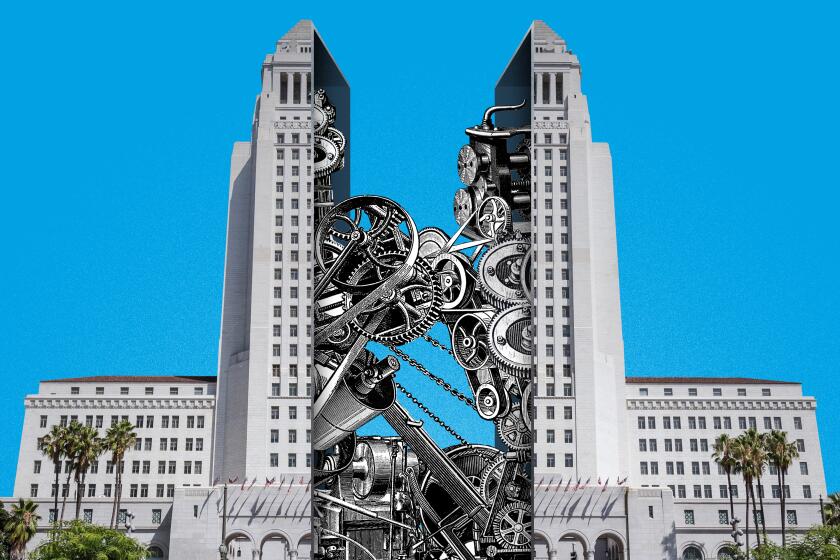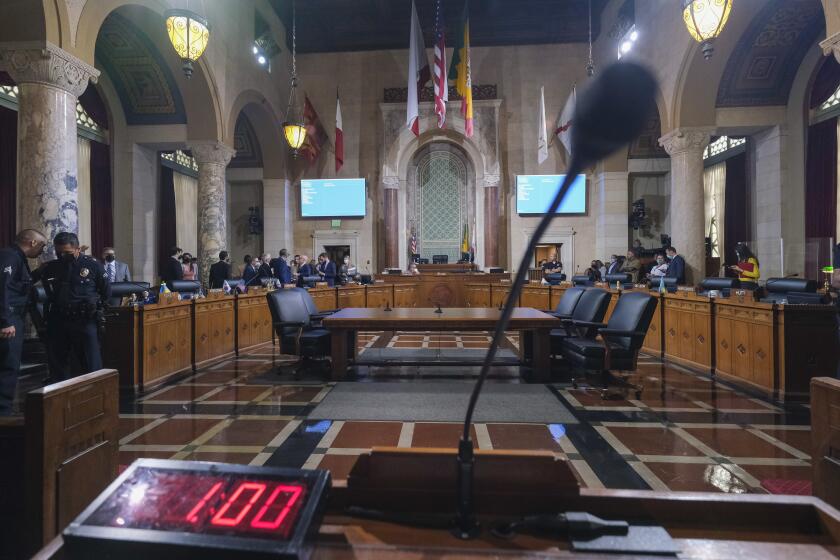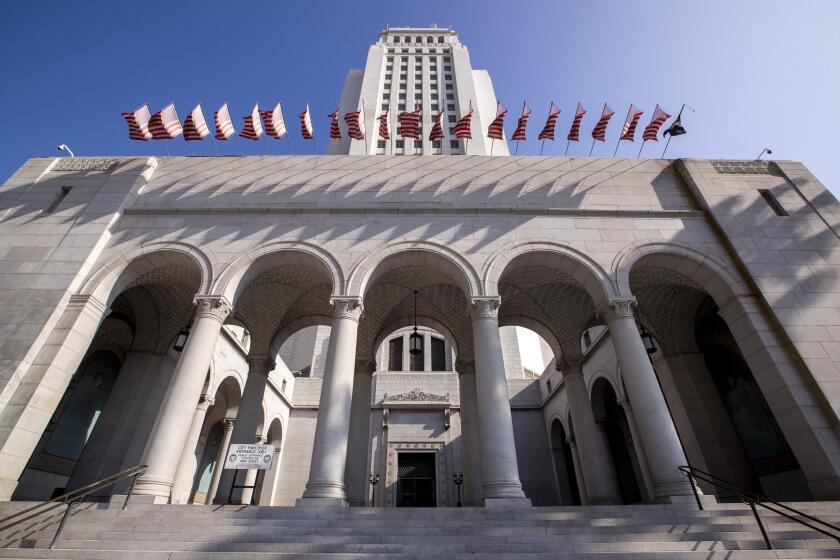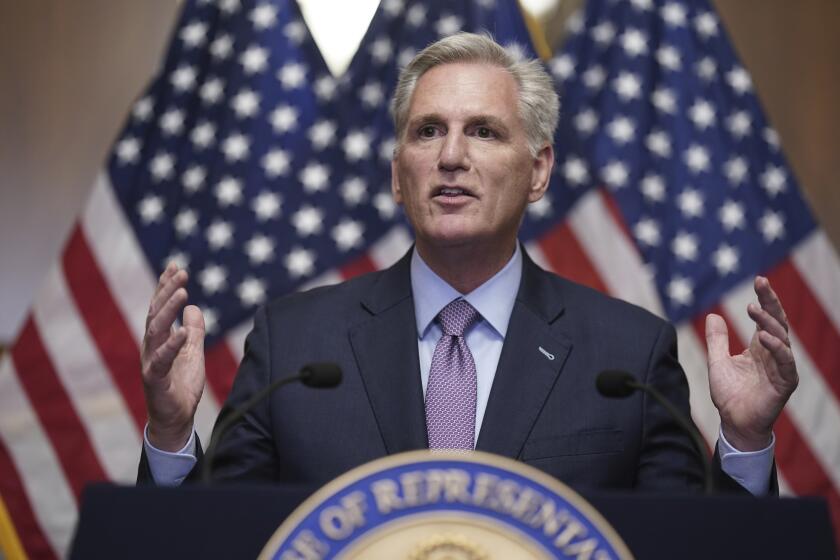Editorial: Are L.A. leaders trying to sabotage City Hall reform?

This is what happens when City Hall reform is left to City Hall insiders: Very little meaningful change gets done quickly.
Last November, Los Angeles City Council leaders launched an ambitious plan to put major reforms before voters to help restore faith in city government after a series of corruption scandals. Now, a year later, with the clock ticking down to get reforms on the November 2024 ballot, just one proposal — an independent redistricting commission — has been approved.
Los Angeles City Hall has been rocked by scandal after scandal, but now there’s momentum to reform city government.
Another key reform, expanding the ranks of the City Council to improve representation, may not get to voters before 2026 because of dithering by the council’s Ad Hoc Committee on Governance Reform. The members say they still have too many questions — a convenient way to put off a decision that would dilute their own political power. Some want to punt the decision to a yet-to-be-created charter commission, which would delay a vote even longer.
What happened to all the promises to embrace City Hall reform? Where’s the urgency? At this rate, Angelenos may have to wait an additional two or more years to vote on much-needed fixes for L.A.’s broken political system. That would mean independent redistricting and the council expansion wouldn’t take effect until 2032 — meaning voters would have to wait a decade for reform and the changes would not affect the current council members. That is too long to wait.
We asked Los Angeles’ elected leaders and candidates if they would support putting a measure on the ballot to enlarge the City Council.
The sluggish pace is unacceptable. L.A. leaders are squandering this rare moment of public interest in governance reform created last year after three council members were caught on a secret audio recording making deplorable and racially divisive comments. And they should know that academics, community groups and others are watching and concerned that reform might be running off the rails.
Most members of the reform committee seem genuinely interested in expanding the City Council — even though it will reduce individual council members’ political power. They recognize that L.A.’s council districts are the largest, by population, in the nation. It’s nearly impossible for a member to adequately engage with and represent 260,000 people. Adding council members and creating smaller districts would provide constituents with localized attention, boost their voice in city government and likely increase ethnic, religious and socioeconomic representation on the council.
The behind-the-scenes effort to kill an appointment to the city’s oversight panel shows just how much L.A. needs political and ethics reforms.
But the committee is getting so bogged down in the details and deliberations over the right number of districts that it’s starting to look like members are running out the clock to avoid putting a council expansion measure on the 2024 ballot. Some members backed the idea of punting the question to another decision-making body. Last week, the committee supported a proposal for a new Charter Reform Commission that would make ballot recommendations, which would delay a council expansion vote to 2026 or later. Or, worse, the commission could reject the idea altogether, leaving L.A. with its outdated council structure.
There’s still time for the council to get off the fence. Councilmember and committee member Nithya Raman said she’s still pushing to put a vote on expansion on next year’s ballot.
The committee has also failed to take on reforms to strengthen the Ethics Commission, the city’s corruption watchdog, and give it more independence from the political officials it is supposed to regulate. The City Council proposed ethics reforms more than a year ago, which are supported by a panel of academics with the L.A. Governance Reform Project, but there has been no significant movement. Last week Ethics Commission President Jeffery Daar and good-government groups sent letters to the council urging it to move as quickly as possible on ethics reforms. It’s unclear if the ethics reforms will be approved before the June deadline to put them on the November ballot.
It took nearly a year for the council to finally approve the creation of an independent redistricting commission. That should have been the easiest change, since there is a proven model already in place for California, Los Angeles County and numerous cities. No more waiting. The council must stop stalling and get reforms approved for November. Angelenos shouldn’t have to wait several more years, or even a decade, for a more ethical and representative city government.
A cure for the common opinion
Get thought-provoking perspectives with our weekly newsletter.
You may occasionally receive promotional content from the Los Angeles Times.






